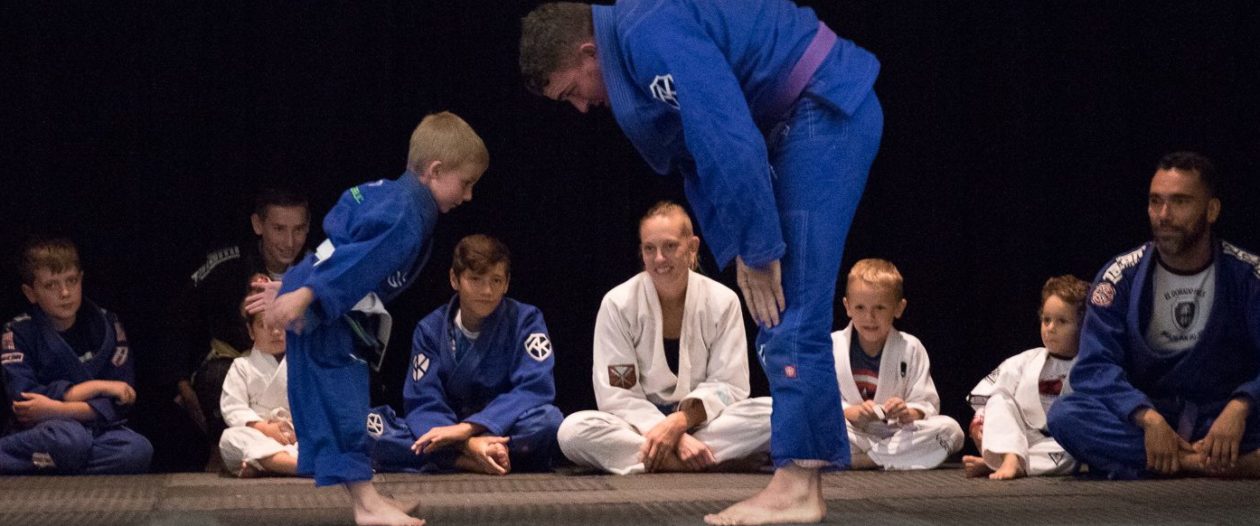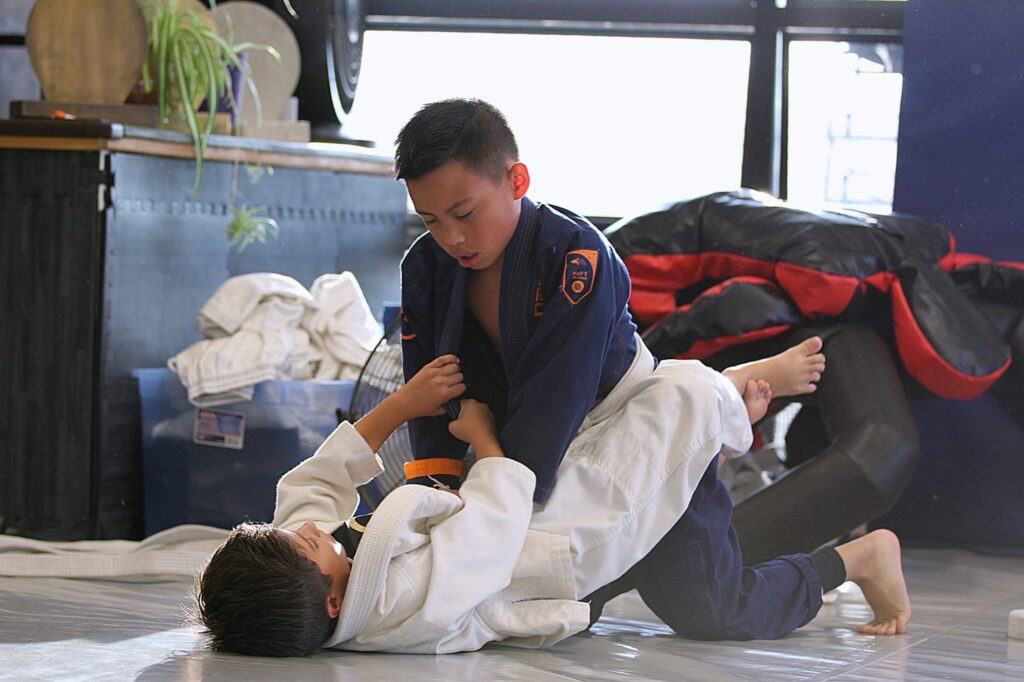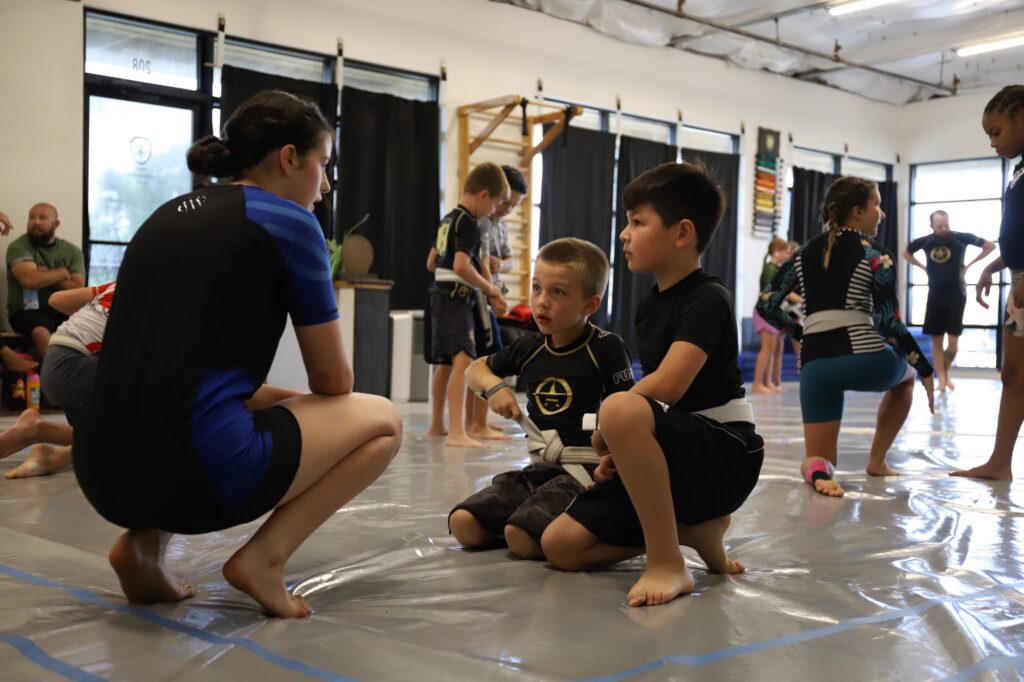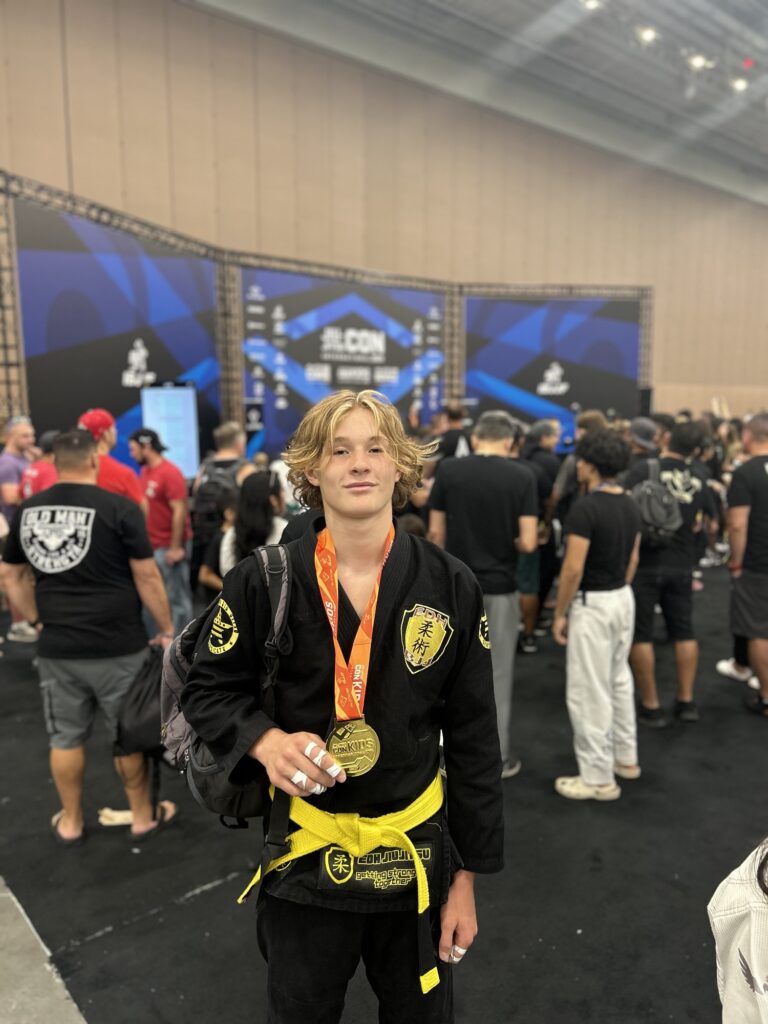At El Dorado Hills Jiu Jitsu, we understand that competitive success is important. Parents want their kids to excel, gain confidence, and perform well in competition. But some of the most valuable lessons in Jiu Jitsu—the ones that help kids grow into strong, capable adults—happen in ways that don’t always look like traditional learning. Moments of peer-to-peer coaching, collaboration, and mentorship build critical life skills that go beyond winning medals.
Learning to Teach, Learning to Learn
Example: Your child is paired with a newer student who is struggling with a technique. Instead of rushing ahead, they slow down, explain the movement, and offer guidance.
Why It Matters: Teaching reinforces understanding. If a child can explain a technique to someone else, it means they truly understand it themselves. More importantly, they learn patience, leadership, and communication—skills that are just as valuable in school, sports, and eventually, their careers.
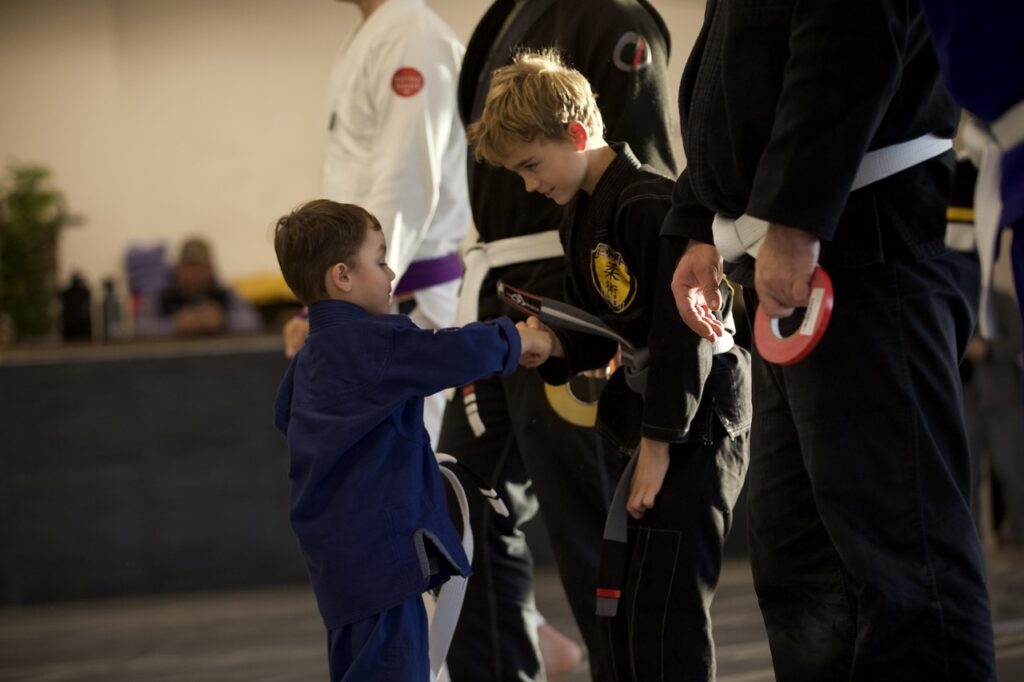
Building a Better Community Through Collaboration
Example: Your child and their training partner can’t quite get a new move to work. Instead of getting frustrated, they start problem-solving—adjusting grips, angles, and timing until they figure it out together.
Why It Matters: This teaches adaptability and teamwork. In competition, athletes often face unpredictable situations, and the ability to think critically under pressure is what separates good competitors from great ones. The habit of working through challenges with others helps build resilience and a growth mindset.
However, collaboration doesn’t mean tolerating bad behavior. If a training partner is being overly aggressive or unsafe, it’s important that your child knows when to speak up. Teaching kids to advocate for themselves and communicate concerns to a coach is an essential part of leadership and self-respect.
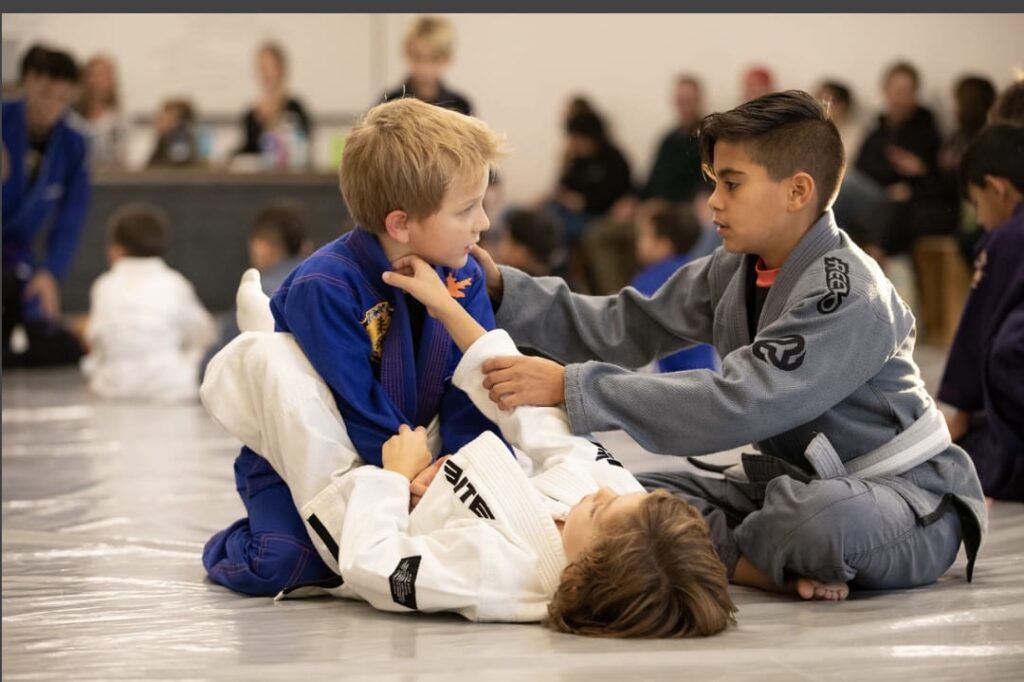
Mentorship and Accountability
Example: Your child loses a tough round in training. Instead of sulking, they watch a more experienced teammate offer advice to a struggling white belt. Inspired, they shift their mindset and start helping others as well.
Why It Matters: Jiu Jitsu is a long journey. Success isn’t just about physical skill; it’s about attitude, mindset, and perseverance. By mentoring others, kids learn accountability—not just for their own progress, but for the well-being of their teammates. That sense of responsibility creates better competitors and, more importantly, better people.
At EDH Jiu Jitsu, we train champions—not just in competition, but in life. The ability to teach, collaborate, and mentor is just as crucial as technical skill. While medals and trophies are exciting, the long-term benefits of learning how to lead, adapt, and support others are what truly set athletes apart.
